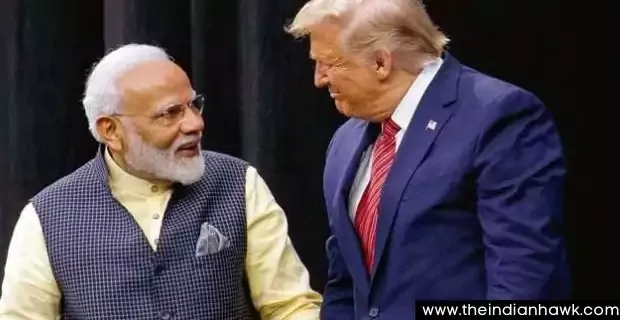Over the past 15 years, ties between India and the United States (US) have scaled new heights in almost every imaginable area. The annual bilateral trade in goods and services today is in the region of $150 billion. The two countries are now natural allies. And they conduct a fair number of joint military exercises annually.
But despite this deepening partnership, trade in defence is a weak spot. As India celebrated the arrival of the first five of 36 Dassault Rafale jets from France late last month, in the middle of a border standoff with China in Ladakh, Washington’s strategic community and stakeholders in the defence industrial base watched with a mixture of dismay and disappointment.
Also Read: China pushing to double nuclear warhead arsenal: Pentagon
For the US government and the country’s defence industry, the Rafale induction at once offered a glimpse into the potential of the Indian defence market and the challenges they face in getting a foothold in the same market.
India was expected to spend over $100 billion over the next decade. But now, post-Ladakh, the country will be forced to upgrade the defence systems more substantially. As part of a buying spree, earlier this month, the government announced buying equipment worth more than $1.16 billion. Prior to that, in the immediate aftermath of the border clashes, the government had approved a purchase of $5.55 billion worth of weapons and equipment.
US companies have also made some inroads. In February, at the “Namaste Trump” event in Ahmedabad, Prime Minister (PM) Narendra Modi and President Donald Trump announced a $3.5 billion deal for India to buy US- made helicopters. That was a small step forward for the US.
But the fact remains that when it comes to shopping for military equipment, India routinely prefers countries such as Russia and France.
Why is India hesitant to buy US defence equipment in spite of having a good and growing strategic relationship?
There are a number of reasons.
One, India has not been a traditional customer of US military equipment. Once major modern defence equipment is inducted into the military, it requires continuous maintenance, which deepens ties with existing suppliers.
Also Read: China provokes again, tries to alter status quo
Two, India has been traditionally reluctant to purchase US hardware due to the apprehension that Pakistan, which has a huge stockpile of American equipment, may be familiar with the weapons. So, the concern that the enemy in the neighbourhood may have intelligence on your weapons gives New Delhi pause.
Three, unlike countries such as Russia, Israel and France, the US has a lot of congressional regulatory hurdles to cross before selling military equipment.
The president has to notify Congress before selling major defence equipment, articles and services to other countries. Congress can block deals if it is not satisfied with them. In addition, the Arms Export Control Act prohibits defence manufacturers from selling sensitive technologies to certain countries.
But none of these are insurmountable. It’s worth remembering that India and the US signed a civil nuclear deal 12 years ago, overcoming intense opposition from both US domestic political forces and the global non-proliferation community.
Also Read: China opens new front along LAC amid de-escalation talks
In this case, all that the two sides have to do is to negotiate in good faith to put a plan and process in place to minimise obstacles, and maximise the opportunities for collaboration. With the strategic goals of the world’s two largest democracies more aligned than ever before, that should not be too difficult.
With India hoping to meet most of its defence needs locally, as part of Prime Minister Narendra Modi’s Atmanirbhar Bharat Abhiyan, the US and its companies are ideally positioned to be the best partners and allies for India in that campaign. This is the time for the US and India to create a defining defence trade relationship for the 21st century.
Frank F. Islam is an entrepreneur, civic leader, and thought leader
The views expressed here are personal.
Source: HT

